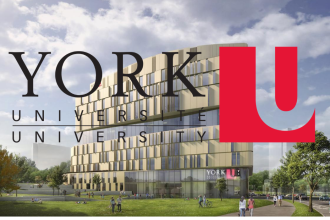As international intake declines, leading universities become less cautious about offers after COVID-19.
Experts believe that school leavers who collect their A-level results on Thursday will have an easier time getting into their preferred institution than their predecessors did two years ago.
This year, a record number of 18-year-olds are applying for universities, but experts said that many universities want to fill accommodation and lecture halls with more UK students due to concerns about a decline in the number of lucrative international students.
This year’s school leavers, the first in five years to have completed both GSCE and A-level exams, will be free of the pandemic’s distorting effect on the number of students accepted by the university.
Leading universities that were obliged to take thousands more students than they wanted when a-level grades were inflated in 2020 are no longer being overly cautious about the offers now that those extra students have worked their way through the system and grades are back on track.
Mark Corver, a former director of Ucas admissions service who now runs DataHE, a consultancy advising universities on university admissions, stated, “All the signs are there that for 18-year-olds holding offers, it will be a better admissions cycle than in either 2022 or 2023.”
According to Corver’s analysis of Ucas data, lower and medium tariff universities made the most offers to UK students this year. The rate offered at the most selective high-tariff universities increased to 69% after decreasing to 61% in 2022.
Corver stated that the possibility of obtaining a first-choice university confirmed last year was the lowest ever for 18-year-olds in England, with 57% getting into their firm’s preference, compared to 68% in 2021, when grades were surprisingly high due to the pandemic.
He stated that this likely contributed to the decrease in the proportion of 18-year-olds applying to university in England this year, as many people may know someone disappointed with their placement.
He stated, “In a young person’s limited experience, not having your first choice of university confirmed is quite a traumatic experience.”
Corver stated that concerns about international student numbers, particularly declines in postgraduate taught courses, would make many universities eager to accept additional UK students. He said: “This is a big issue in the [elite] Russell Group, which is extremely dependent on these international students for revenue.” “Universities used to pick and choosing have been very worried by the swings.”
The number of international students seeking visas to study in the UK has fallen by 15% in the last year as a result of the Conservative government’s modifications to the rules for bringing family members into the country.
The Migration Observatory suggested that country-specific factors, such as the Nigerian currency crisis, could also be to blame. In recent years, thousands of Nigerians have studied in the UK.
Although sixth-formers will not see their A-level results until Thursday, universities have been looking over them in secret since Friday evening. Admission experts stated that they would evaluate the files of candidates who had narrowly missed their grades.
Nick Hilman, director of the Higher Education Policy Institute think tank, said, “If you missed a grade, you might log on to Ucas and find that the university has offered you a place anyway. If not, it is always worth getting on the phone.” Hillman stated that universities expected to lose up to half of their valuable international students due to visa restrictions for family members. He also said that many universities now have unexpected accommodations, lecture halls, and teaching capacity, and British students could fill that.
He went on to say that, while demand for international students remained higher than supply at the most competitive universities, such as Oxford and Cambridge, this could explain why three-quarters of Russell Group universities are already clearing courses.
He stated, “Another reason is that the COVID bulge has now worked its way through the system. So they don’t need to recruit fewer first years to compensate anymore.”
According to Mike Nicolson, director of recruitment and admissions at Cambridge University, more school leavers this year did not want to apply until they knew their results.
He stated, “We know one of the consequences of the pandemic is that students are a bit less confident about moving away from home and more reluctant to make decisions with an uncertain outcome.”
Cambridge has no courses in clearing, and Nicholson anticipates that all of its spots will fill “without issue.” However, he projected that other universities would refer “near miss” applicants with offers over the “uncertainty” of accepting new students at the last minute.
He said, “If you have quite a small number of vacancies, you might decide that taking someone who has narrowly missed their grades who really wants to come to your university is a better bet.”














